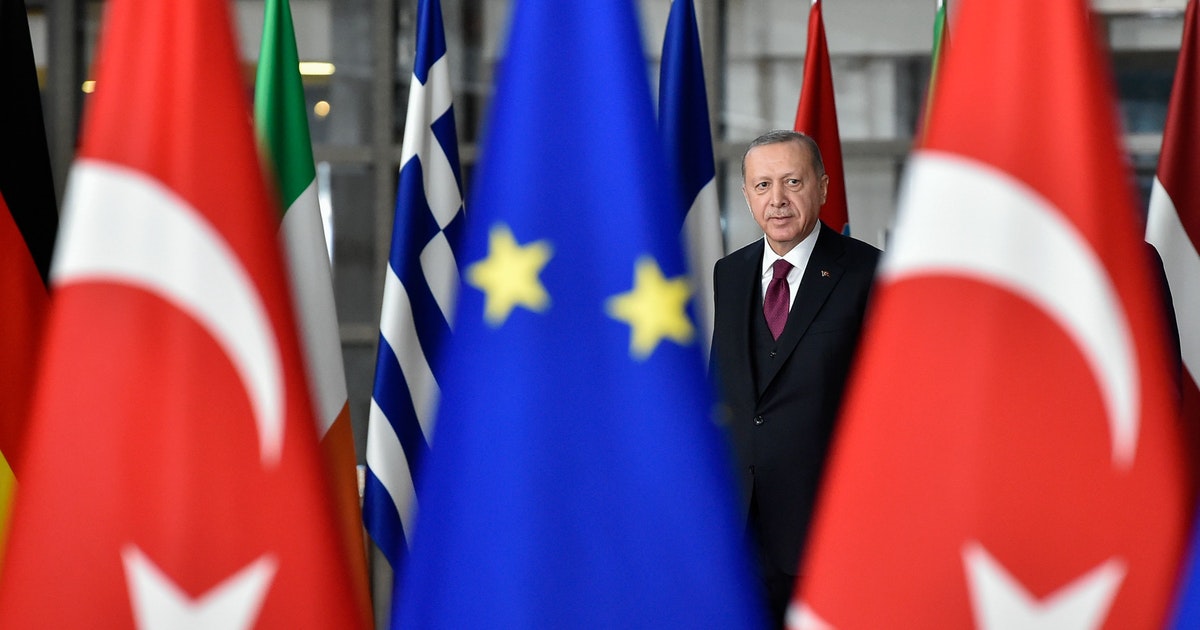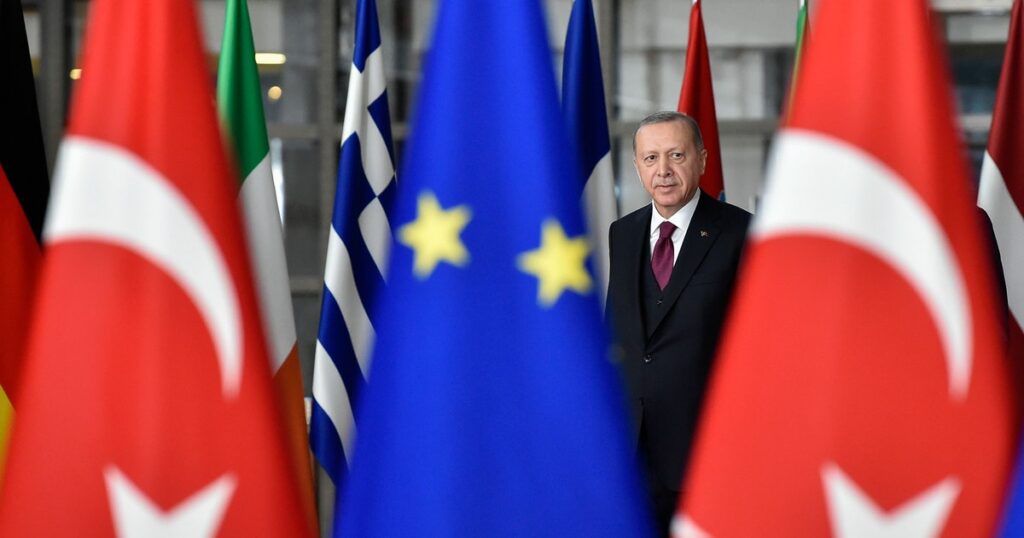Address
304 North Cardinal St.
Dorchester Center, MA 02124
Work Hours
Monday to Friday: 7AM - 7PM
Weekend: 10AM - 5PM
Address
304 North Cardinal St.
Dorchester Center, MA 02124
Work Hours
Monday to Friday: 7AM - 7PM
Weekend: 10AM - 5PM


The pace of diplomacy has intensified in the Middle East and Eastern Mediterranean in the last few weeks with Saudi Arabia, together with Egypt, looking to play a more active role in facilitating inter-Arab cooperation in the region, especially vis-à-vis the United States and the Western bloc. Within this context of shifting power balances and tightening of diplomatic alliances, it becomes increasingly difficult for the Turkish President Erdogan to position Turkey as a strong and viable actor in the region as well as the wider world, something that he desperately seeks to do as the next presidential elections, scheduled for 18 June 2023, loom large in the horizon.
On 20 June 2022, Saudi Crown Prince Mohammed bin Salman landed in Cairo to meet with Egyptian President Abdel Fattah al-Sisi, which constituted the first leg of his regional tour. Prince bin Salman’s tour came right before the United States President Joe Biden’s first visit to the region, which is scheduled to take place in July 2022. According to sources, bin Salman and al-Sisi discussed the effects of the Russian invasion of Ukraine in addition to trying to coordinate a unified regional position ahead of Biden’s visit. At the end of the meeting, Saudi Arabian and Egyptian officials signed fourteen economic agreements worth $7.7 billion, which aimed at the strengthening of ties between the two countries. It is important to note that Egypt is the biggest Arab trading partner of Saudi Arabia, with Saudi investment in Egypt being around $32 billion and Egyptian investment in Saudi Arabia amounting to $5 billion.
Leaving Cairo, Prince bin Salman went to Amman where he met Jordan’s King Abdullah on 21 June 2022. The meeting marked Prince bin Salman’s first visit to Jordan in more than five years and was seen as the beginning of a new phase in Saudi-Jordanian relationship. Despite having close ties for decades, the relations between Saudi Arabia and Jordan came under strain in the last few years due to the Jordanian allegations that Saudi Arabia’s close ties with former U.S president Donald Trump undermined Jordan’s traditional mediator role in the Arab-Israeli conflict. Although there was nothing related to an expected $3 billion Saudi aid to Jordan in the joint statement issued after Crown Prince bin Salman’s meeting with King Abdullah, the parties emphasized increased financial and diplomatic cooperation between the two countries.
This flurry of diplomatic activity that has been going on among the regional powers is closely related to President Biden’s first visit to the Middle East as the president of the U.S. During his tour of the region, Biden plans to travel to Saudi Arabia, Israel and the Palestinian territories. His intention to meet with Saudi Crown Prince bin Salman drew heavy criticism due to the role that bin Salman played in the murder of Saudi journalist Jamal Khashoggi inside Saudi Arabia’s Istanbul consulate in 2018. More importantly for the purpose of this analysis, however, is the fact that Biden is expected to attend the meeting of the Gulf Cooperation Council (GCC), in which other regional powers including Egypt, Jordan, and Iraq will also participate.
It is safe to argue that the regional actors attribute great importance to Biden’s visit. Before meeting with Crown Prince bin Salman, for instance, Egyptian President al-Sisi hosted with the leaders of Bahrain and Jordan in Sharm al-Sheikh on 19 June 2022 to discuss Biden’s trip to the region. Moreover, representatives of Bahrain, Israel, the United Arab Emirates and Morocco came together in 27 June 2022 and agreed on closer regional cooperation and an annual foreign ministers’ meeting. Finally, it is also important to note the recent efforts of rapprochement that have been taking place in the past few months between Israel and the Arab nations.
Turkey, as one of the most important actors in the Middle East and Eastern Mediterranean, is conspicuously absent from this picture even though in the past 1.5 years, President Erdogan has been trying to mend Turkey’s broken ties with the regional powers, the latest case being Saudi Arabia. After Erdogan’s trip to the Saudi kingdom in April 2022, his first since 2018, Crown Prince bin Salman visited Turkey on 22 June 2022, as the last leg of his tour of the region. President Erdogan welcomed bin Salman with a grand state ceremony and emphasized his intention to improve the relationship between the two countries. This declaration is in stark contrast with just four years ago, when Erdogan was strongly accusing Crown Prince bin Salman with the murder of Jamal Khashoggi in 2018. The pattern was also repeated in the case of the United Arab Emirates, whom Erdogan had repeatedly claimed to be the financial mastermind behind the 2016 coup attempt and with whom he then came to a diplomatic agreement in February 2022.
The main reason why, despite all these efforts and U-turns, Erdogan struggles to position Turkey as a viable actor in the Middle East is his domestic political vulnerability. The severe economic crisis that Turkey has been going through, which is caused mainly by faulty policies that President Erdogan insists on implementing, as well as the emergence of a unified opposition bloc against him erodes Erdogan’s support in the polls. According to a recent poll that Metropoll Strategic and Social Research Centre published on 30 June 2022, for instance, Erdogan is predicted to lose against all of the possible oppositional candidates by a significant margin in the second round of the presidential elections. It may be safe to assume that unless there is a dramatic improvement in the economic conditions of the country, this pattern of decline in Erdogan’s vote will continue.
Looking at this picture, it would not be too far-fetched to assume that Erdogan’s counterparts in the international arena are aware of Erdogan’s political vulnerability and prepare themselves for a scenario where in a year Erdogan may not be the President of Turkey. In other words, the powers who play active roles in the Middle East and East Mediterranean, including the U.S, may rather focus on short term goals and adopt a cautious “wait and see” policy when it comes to Turkey’s role in the region rather than entering into a long-term strategic cooperation. It must be emphasized, however, that Erdogan’s current political vulnerability does not mean that he cannot score a number of short-term gains. The Turkish President used the hand he was dealt wisely, for instance, in the issue of Sweden and Finland’s NATO membership and, using Turkey’s veto power in the NATO, gained a number of concessions from the two countries, including the lifting of any weapons embargoes against Turkey and more effective cooperation in fighting terrorism. Biden’s latest promise to Erdogan to put pressure on the Congress about the modernization of the Turkey’s F-16 fighter jet fleet should also be seen within this context.
In the long run, maybe the more important question to consider would be: who is going to take over Turkey’s leadership after Erdogan and how will they shape Turkey’s foreign policy? The opposition bloc has not yet come up with a coherent framework on how they would run the country’s foreign policy. Moreover, they have been considerably reluctant to increase their contacts with the international community, most importantly with the EU and the U.S. Until Turkey determines on a new foreign policy horizon and makes a clear choice on where it would place itself in the “new Cold War” that has started to gain momentum, Erdogan will continue to struggle to present Turkey as a viable international actor while trying to use his short-term foreign policy gains to ease his domestic political vulnerability.